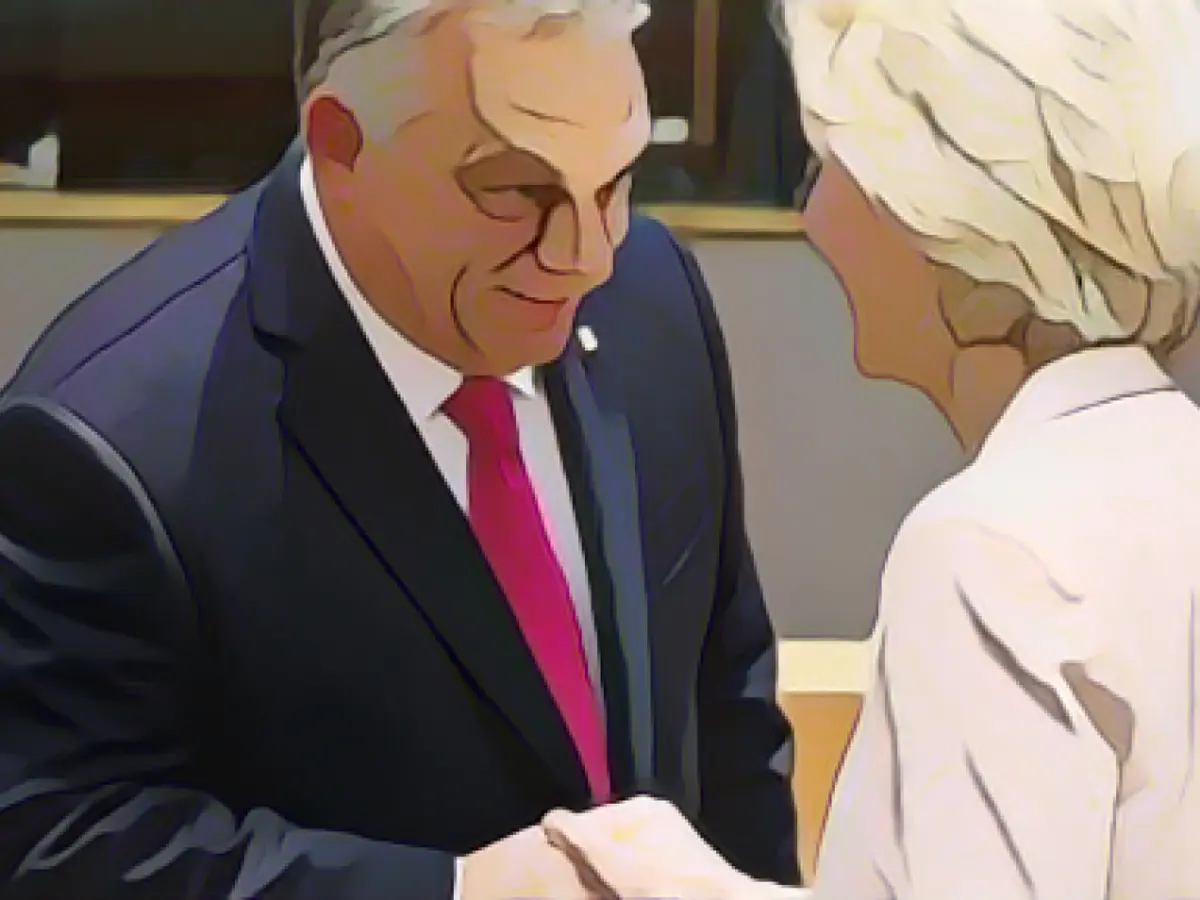EU Splits Over Aid to Hungary: Critics Call It a Bribe to Orban
European Union (EU) leaders are set to discuss aiding Ukraine and initiating accession talks with Kiev during their pre-Chrismas summit, but a new controversy has arisen amidst criticisms towards Ursula von der Leyen. The Commission has decided to release 10 billion euros to Hungary, despite sharp criticism from various parties in the European Parliament. Viktor Orban, Hungary's right-wing populist prime minister, had previously blocked aid plans, and critics now accuse him of "blackmail" due to his demand for repayments from the EU.
Regional funding for Hungary is now "no longer blocked," allowing the country to claim reimbursements of up to 10.2 billion euros. This amount is almost half of the 21.7 billion euros that the EU had initially frozen amidst disputes with Orban. The Commission declared that Hungary had implemented the required measures for its judiciary's independence, allowing for the release of funds. However, Green MEP Daniel Freund deemed the decision the "biggest bribe in EU history" to Orban, a Putin ally.
FDP MEP Moritz Körner argued that democracy in Hungary was being sacrificed to save democracy in Ukraine. Freund argued that Budapest had only delivered reforms on paper and that the irregularly appointed President of Hungary's Supreme Court would likely remain in office before retiring or passing away.
CSU politician Monika Hohlmeier, who chairs the Budgetary Control Committee in the European Parliament, criticized the Commission for releasing funds at an inopportune time. She claimed that the money would likely end up in the hands of Orban's confidants in his Fidesz party and oligarchs loyal to the government.
Large political groups in the EU Parliament had attempted to dissuade von der Leyen from this decision but she maintained that her priority was the planned 50 billion euros in aid for Ukraine. As a result, the EU member states have remained quiet about the criticism towards leyen, although Luxembourg foreign minister Xavier Bettel voiced concerns that Hungary lifting its veto and receiving so much money would further dampen trust in Europe.
Belgium's head of government, Alexander de Croo, accused Orban of creating a "Hungarian bazaar," where anything could be traded. Last year, the EU initiated rule of law proceedings against Hungary for misappropriating European budget funds, and further billions have been held back due to other breaches of fundamental rights, such as the rights of asylum seekers, sexual minorities, and academics.
Chancellor Olaf Scholz has addressed Hungary's resistance during his government statement on the EU summit in the Bundestag. He plans on advocating for both aid for Ukraine and accession negotiations with Kiev at the summit, despite Hungary's obstruction.
Background
The EU had previously frozen 19 billion euros in funds for Hungary due to corruption allegations, lack of control, and transparency in public procurement, as well as violations of democratic standards such as political financing, conflicts of interest, and media independence. The EU's conditionality proceedings were initiated to encourage Hungary to meet EU democratic standards and the rule of law.
Implications
The loss of funding is significant for Hungary, particularly given its economic challenges. The country's economy is struggling, and the mismanagement of the funds could exacerbate its financial situation. Furthermore, the ongoing tensions between Hungary and the EU over democratic values and the rule of law have led to disciplinary proceedings and legal challenges, potentially deepening the divide between the two.
Enrichment Data
The controversy surrounding the EU's decision to release funds to Hungary may have been enflamed by the fact that the EU had initially frozen 19 billion euros in funding for Hungary due to corruption allegations and EU conditionality proceedings.





